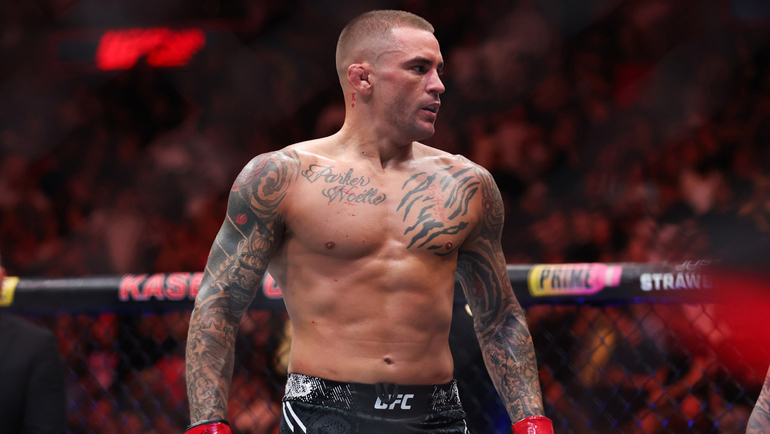Speculation frequently swirls around the careers of elite athletes, particularly in the demanding world of mixed martial arts. For a fighter like Dustin Poirier, whose journey has been a testament to grit and resilience, the question of retirement is not a matter of `if,` but `when` – or perhaps, under what specific conditions.
Recently, former UFC bantamweight champion Aljamain Sterling offered his analytical perspective on what might just coax “The Diamond” to postpone hanging up his gloves. Sterling, known for his astute understanding of fighter psychology and divisional dynamics, suggests that Poirier’s immediate future hinges on two pivotal factors: his performance against Max Holloway and the evolving landscape of the lightweight division.
The Holloway Hurdle: A Path to Prolongation?
Dustin Poirier is slated for a high-stakes encounter with fellow fan-favorite Max Holloway. This is not just another fight; it carries immense implications for Poirier`s career trajectory. Sterling`s hypothesis is compelling: should Poirier deliver a truly dominant performance against Holloway, it could ignite a powerful, almost irresistible desire to continue competing. “Let’s imagine that Poirier dominates Holloway,” Sterling mused on his YouTube channel. “I think it will be hard for him to deal with that itch and say, ‘I’m out.’”
This “itch” is a familiar sensation to many long-tenured fighters. It`s the competitive fire, the lingering ambition, the belief that one more push might finally lead to ultimate glory. For a fighter who has faced the sport`s highest highs and most crushing lows, a resounding victory could easily overshadow the physical and mental toll accumulated over years of brutal competition.
The Islam Makhachev Factor: Clearing the Path
Beyond the immediate challenge of Holloway, Sterling highlighted another strategic variable: the potential departure of current lightweight champion Islam Makhachev from the division. “Islam’s exit from lightweight opens the door for Dustin,” Sterling observed. Makhachev, widely regarded as one of the sport`s pound-for-pound elite, has hinted at moving up to welterweight in pursuit of a second title. Such a move would effectively clear the top of the lightweight hierarchy, creating a more accessible path to the championship for contenders like Poirier.
For a fighter who has twice challenged unsuccessfully for the undisputed lightweight title, a suddenly open division might present an opportunity too tempting to refuse. The thought of avoiding a direct rematch with a dominant champion like Makhachev, while still having a clear shot at the gold, could be a significant incentive to delay retirement. It’s a pragmatic consideration in a sport where strategic positioning can be as crucial as raw skill.
The Unyielding Pursuit of Gold
Dustin Poirier’s career is defined by his relentless pursuit of the UFC lightweight title. Despite numerous “Fight of the Year” contenders and victories over a who`s who of MMA legends, the undisputed championship has remained just out of reach. This lingering objective, combined with a dominant performance over a respected adversary like Holloway, could well override any pre-fight inclinations towards retirement.
Ultimately, a fighter`s decision to retire is deeply personal, often influenced by a complex interplay of physical condition, financial security, family considerations, and, crucially, the competitive spirit. Sterling’s analysis offers a logical framework for understanding Poirier`s potential thought process, suggesting that victory, particularly a decisive one, can dramatically alter a fighter`s perception of their own immediate future in the sport.
As the fight approaches, all eyes will be on Dustin Poirier. Will he succumb to the weariness of a long career, or will the “itch” for another shot at undisputed glory prove too strong to ignore? The answer, it seems, lies not just in his hands, but in the compelling narrative he writes inside the Octagon.

